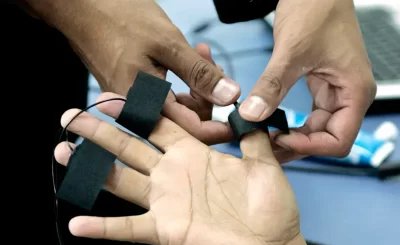The answer is simple: because it can help your website rank higher in search engine results pages (SERPs), and ultimately drives more traffic to your site.
But how do you go about optimizing your website for SEO? In this article, we’ll cover the basics of website optimization for SEO, including on-page and off-page optimization techniques. We’ll also share some advanced optimization techniques that can help take your SEO game to the next level.
So, if you’re ready to learn how to optimize with 网站seo let’s get started.
Basics of Website Optimization for SEO
There are two main types of website optimization: on-page optimization and off-page optimization.
On-page optimization refers to all the measures you can take to make your website more search engine friendly. This includes things like optimizing your website’s title and meta tags, as well as creating keyword-rich content.
Off-page optimization, on the other hand, refers to all the measures you can take to improve your website’s search engine ranking that are not directly related to your website itself. This includes things like building backlinks and creating social media profiles.
Both on-page and off-page optimization are important for SEO. However, in most cases, on-page optimization is the place to start. That’s because, if your website is not optimally designed for search engines, it will be difficult to rank well, no matter how many high-quality backlinks you have.
On-Page Optimization Techniques for SEO
On-page optimization is all about making your website as search engine friendly as possible. Here are some on-page optimization techniques you can use to improve your website’s SEO:
- Optimize your website’s title and meta tags.
Your website’s title and meta tags are important elements of your website’s on-page SEO. Make sure to include relevant keywords in these tags, and avoid stuffing them with too many keywords.
- Create keyword-rich content.
Your website’s content is another important element of your on-page SEO. Make sure to include relevant keywords throughout your content, and avoid keyword stuffing.
- Use social media.
Social media can be a great way to promote your website and improve your on-page SEO. Make sure to create profiles on popular social media sites, and include links to your website in your profile.
- Optimize your website’s images.
Images are an important part of your website’s on-page SEO. Make sure to include relevant keywords in your image file names and alt tags.
- Use external links.
Linking to other websites can help improve your on-page SEO. Make sure to link to websites that are relevant to your website’s topic, and avoid linking to spammy or low-quality websites.
Off-Page Optimization Techniques for SEO
Off-page optimization is all about building backlinks and creating social media profiles. Here are some off-page optimization techniques you can use to improve your 网站seo:
- Build backlinks.
Backlinks are one of the most important factors in SEO. Make sure to build backlinks from high-quality websites, and avoid linking to spammy or low-quality websites.
- Create social media profiles.
Social media profiles can help improve your website’s SEO. Make sure to create profiles on popular social media sites, and include links to your website in your profile.
- Participate in online forums.
Participating in online forums can be a great way to build backlinks and improve your website’s SEO. Make sure to participate in forums that are relevant to your website’s topic, and avoid linking to spammy or low-quality websites.
- Directory submissions.
Submitting your website to online directories can help improve your website’s SEO. Make sure to submit your website to relevant directories, and avoid submitting to spammy or low-quality directories.
- Guest blogging.
Guest blogging can be a great way to build backlinks and improve your website’s SEO. Make sure to guest blog on high-quality websites, and avoid guest blogging on spammy or low-quality websites.
Advanced Optimization Techniques for SEO
Here are some advanced optimization techniques you can use to improve your website’s SEO:
- Use Google Analytics.
Google Analytics is a free tool that can help you track your website’s traffic and optimize your website for SEO.
- Use Google Search Console.
Google Search Console is a free tool that can help you track your website’s search engine rankings and optimize your website for SEO.
- Use Google AdWords.
Google AdWords is a paid tool that can help you track your website’s traffic and optimize your website for SEO.
- Hire an SEO consultant.
If you’re serious about improving your website’s SEO, you may want to consider hiring an SEO consultant. SEO consultants can help you optimize your website for SEO and track your website’s traffic and search engine rankings.








